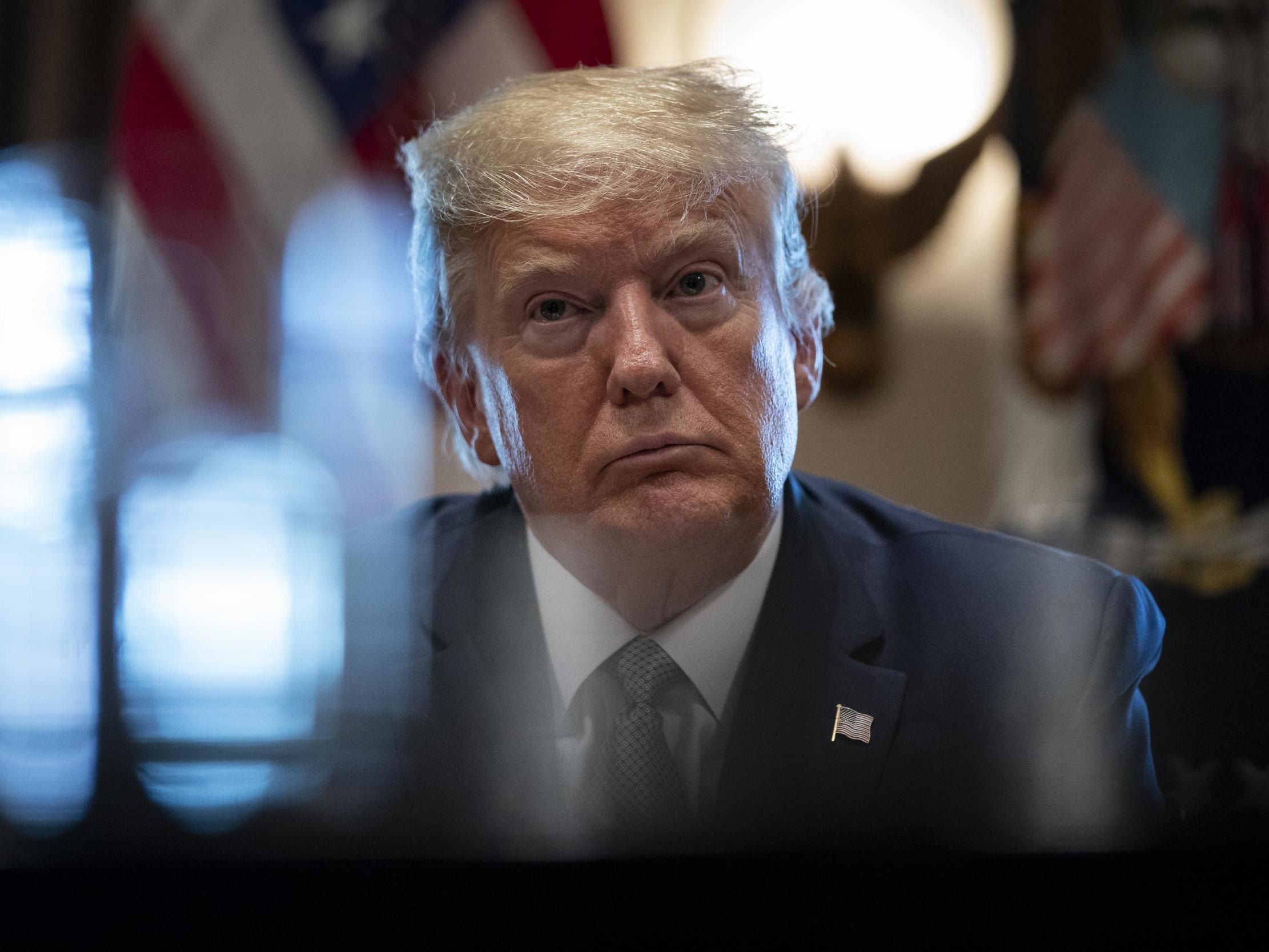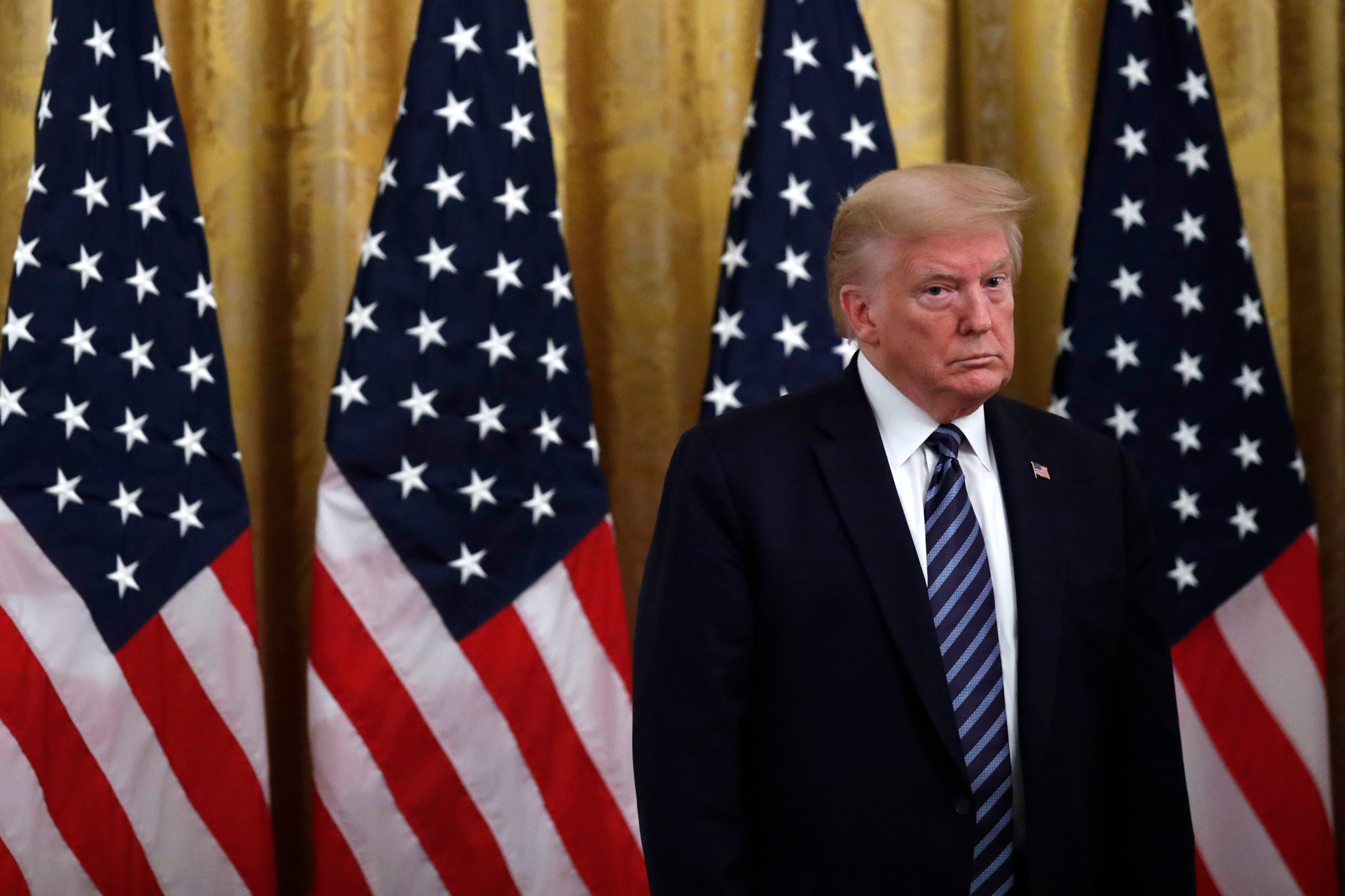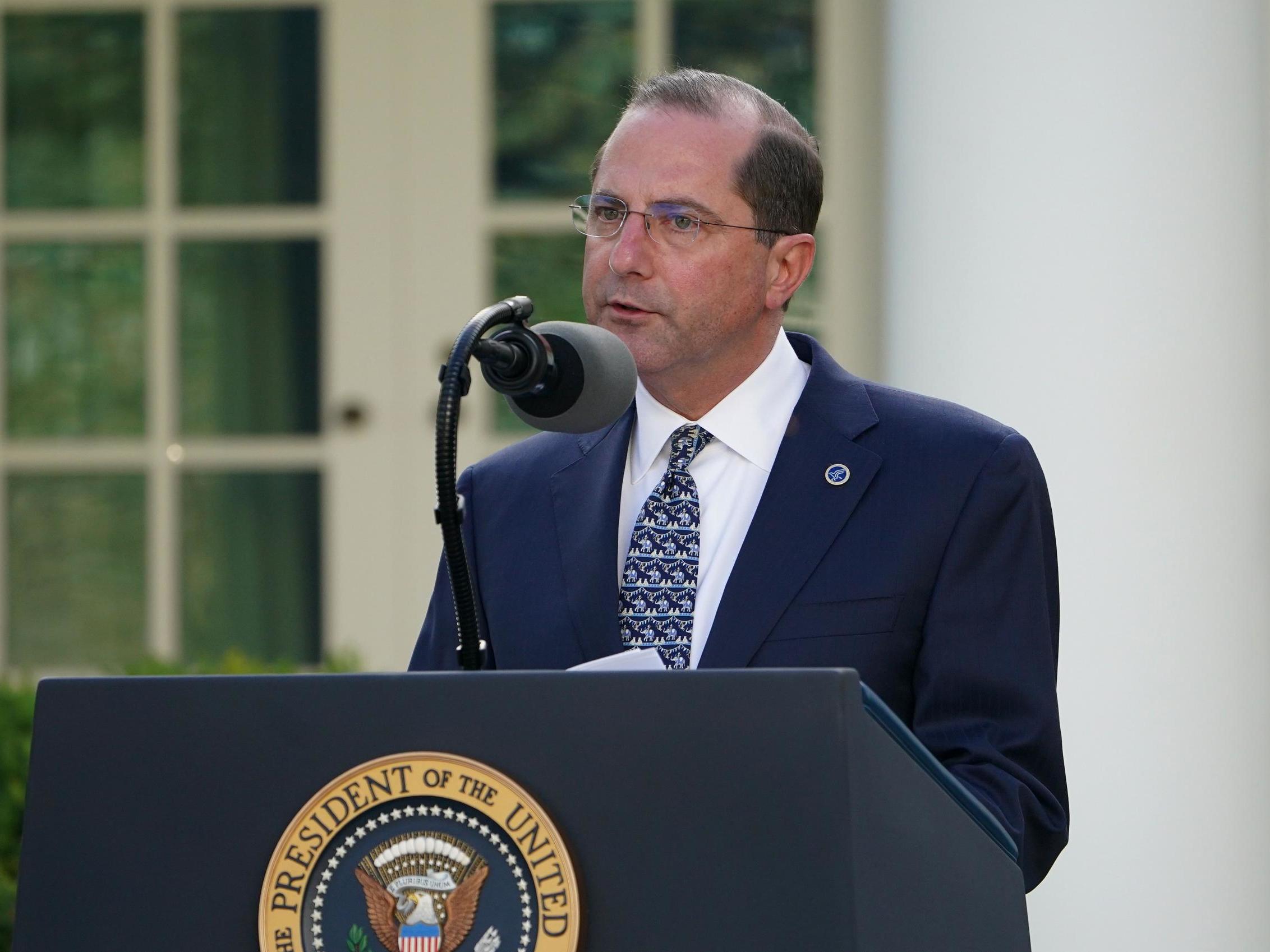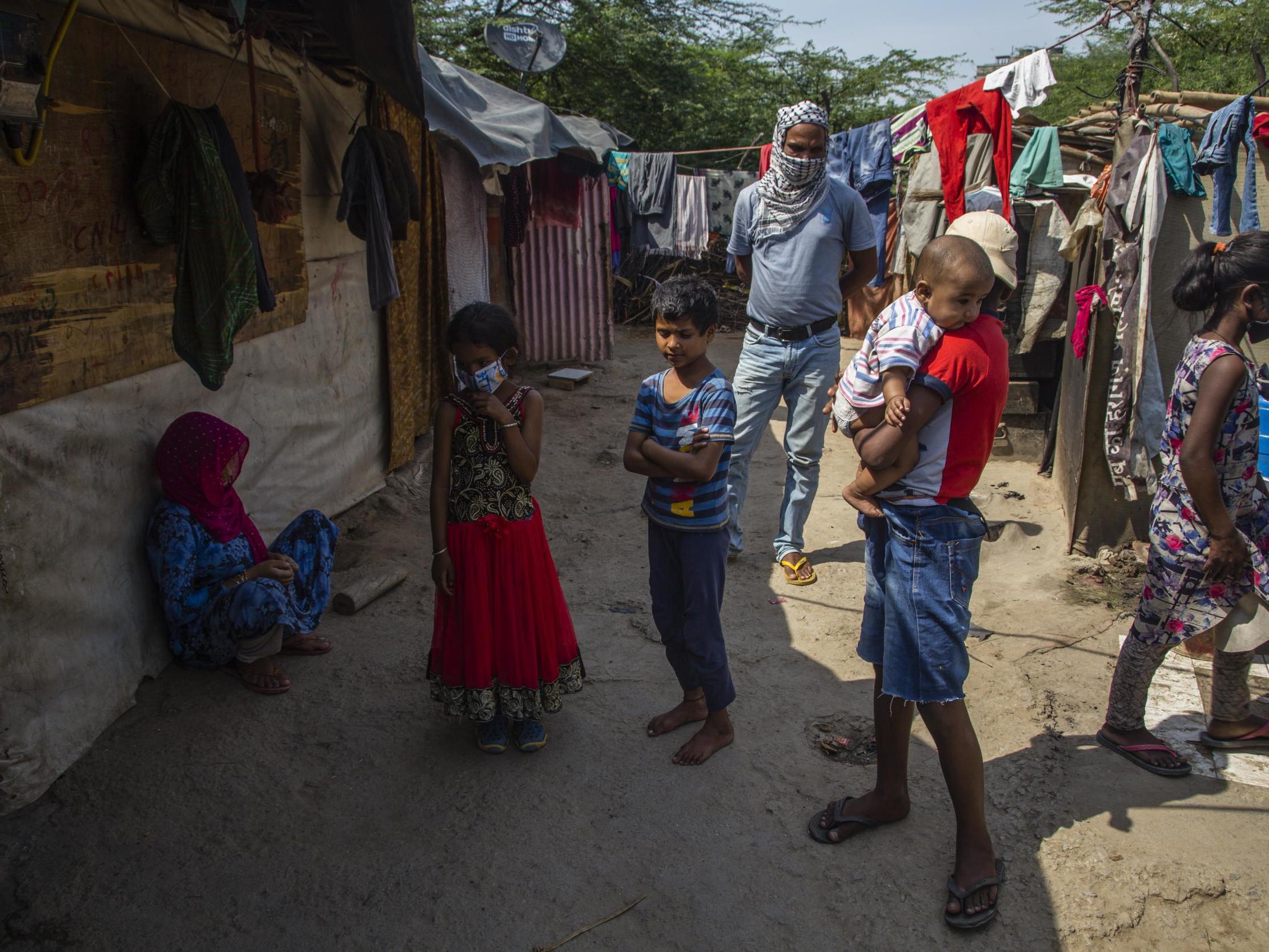‘The vaccine is only half the story’: If a cure is found, the world must be ready for the challenges that follow
If an effective vaccine is developed, unfettered capitalism and entrenched notions of nationalism cannot be allowed to paralyse humanity’s next step in tackling the coronavirus pandemic, writes Samuel Lovett


As governments and pharmaceutical companies race to develop an effective vaccine for Covid-19 – one that would allow a gradual transition back to the life we knew – the global establishment finds itself drifting towards a series of stumbling blocks that, if left neglected, will undermine the meaningful scientific progress that is made in the coming months.
To hand humanity its best hope of combating this pandemic, the world must now ready itself for the logistical, political and ethical challenges that are set to arise in manufacturing and delivering a vaccine to billions of people. The assumption that one will be produced at all is optimistic – there are currently no vaccines available for the coronavirus family – but this shouldn’t deter us from preparing for what comes next.
There are numerous questions that health authorities and governing bodies must face as scientists creep closer to finding a cure: how will it be manufactured on a global scale? Who will be responsible for production? How will it be distributed? Will patents be abandoned? Will knowledge be shared? Will universal access be provided? Who will be prioritised? “What’s important in all this is that people think about these things now,” says Ellen ‘t Hoen, an expert in medicines policy and a researcher at the University Medical Centre Groningen. “Not when the vaccine becomes available as that’s too late.”
There is much to learn from previous pandemics and the “cracks within the system” that they exposed, according to Heidi Chow, the director of Global Justice Now’s campaign for equitable pharmaceutical policies. “We’ve got an innovation system that is geared completely to profitability rather than to public health,” she says. “So during these times of global health crises, there’s this tension that starts to pull.”
In the case of the HIV pandemic of the 1980s and ’90s, therapeutic drugs were priced at unaffordable rates by ruthless pharmaceuticals and protected by intellectual property rights, meaning people across the world, especially those in sub-Saharan Africa, couldn’t access the life-saving medicine they needed. More recently, the development of a swine flu vaccine in 2009 triggered a “global free-for-all” as major countries such as the US rushed to fill up their supplies. “The WHO was basically helpless in the face of rich countries hoarding vaccines,” says Chow. “There was nothing left for the developing countries until the pandemic itself had tailed off.”
While the Covid-19 crisis presents its own unique challenges, the lessons of the past still ring true today; if and when a vaccine is developed, unbridled capitalism and entrenched notions of nationalism cannot be allowed to paralyse the global response. Millions of lives depend on a coordinated and just international approach – the sort of which has never been seen before.
The odds are certainly against us. “Development of the vaccine candidate is only half the story,” says Austin Lock, a technical director and pharmaceutical engineer at PM Group. “The manufacturing challenges are significant.” Vaccines are biologics – a product that is made from or contains components of living organisms – and are subsequently much harder, and more expensive, to produce en masse. For the past 10 years, pharmaceutical companies have abandoned vaccine production in favour of more profitable lines of business, so much so that almost all today’s vaccines are produced by just four companies: GSK, Johnson & Johnson, Pfizer and Sanofi.
This has stripped the world of its ability to produce vaccines on the scale needed to supply 7.6 billion people. Last week, GSK admitted that even if its collaborative approach with Sanofi was successful – the two companies are working together to increase manufacturing capabilities – this would still not be enough to supply 20 per cent of the world’s population within a year. If two of the biggest pharmaceutical giants on the planet struggle to deliver, their counterparts in China, India and beyond are unlikely to fare any better. As for the developing world, “you’re going to have a difficult time finding companies that are even capable of implementing the right technology”, says Andy Sumner, a professor of international development at King’s College London.
The Wellcome Trust, a UK-based health research charity, estimates that there will be insufficient supply to meet the global demand for at least a year after the vaccine becomes available. “Volume is going to be a serious issue,” says Dr Mohga Kamal-Yanni, a consultant in global health and access to medicines. Bill Gates has already taken measures into his own hands, pumping money into the construction of production plants for seven promising vaccine candidates. The billionaire has acknowledged that “billions” will be wasted, but given “the situation we’re in”, he says, “where there’s trillions of dollars … being lost economically, it is worth it”. But it’s still unlikely to do the job.

One emerging hope is the creation of a global pooling mechanism that allows companies, governments and scientists to share production techniques, knowledge and resources. “If we get a vaccine that works, we need to get it out to as many people as fast as possible – which means putting patent issues to one side and sharing all the IP, all the biological sources, all the manufacturing processes,” says Dr Mohga. “Once we have that, then there’s multiple companies across the world who can produce the vaccine. Cooperation is key.”
Last month, Germany, France and the UK, along with a number of charity bosses and industry chiefs, declared their support for a WHO initiative that pledges to share any treatments and vaccines across the globe. The finer details are missing for now, but it remains a step in the right direction. However, America, India and China – three countries that dominate the pharmaceutical sector – were conspicuous in their absence. Any refusal on their part to cooperate when a vaccine is developed could prove potentially disastrous.
Under the current climate of distrust and disunity, with Donald Trump waging a PR war against the WHO and China while Jair Bolsonaro continues to brazenly dismiss the threat of Covid-19 – “It’s just the sniffles,” he shrugged last month – the global community is walking on thin ice.
For some, America has already shown its colours. “You’ve seen the US going around trying to buy up companies that are developing vaccines,” says ‘t Hoen. “They don’t display much love for the multilateral system, but under this administration it’s beyond the pale.” Dr Mohga points to reports that the US diverted a shipment of face masks travelling from Bangkok to Germany, describing it as “modern piracy”. “If there is a vaccine produced by an American company, such as Johnson & Johnson, you can only imagine what Trump will do,” she adds. “He would try to block exports.”
Despite this, The Independent understands there was an early “openness” within the Department of Health and Human Services (HHS) to commit to a unified response, with officials said to have been “willing” to engage in an atmosphere of cooperation. But the president’s public vacillations and attacks have thrown this into doubt. “It’s going to be very difficult to get the US to commit to anything to do with the WHO,” says James Love, director of Knowledge Ecology International, an NGO that specialises in intellectual property and health policy. “We’ve told HHS ‘what if Germany or Switzerland gets there first? Won’t you want access?’ All they need to do is entertain the idea of sharing IP [intellectual property] and get the ball rolling. It’s nothing lost.” At this point, though, it’s impossible to predict if the White House will fall in line when, for the past four years, it has been irrevocably “America First”.
If the US or any other major country with crucial manufacturing capabilities do opt to step back and go it alone, the whole international approach could be brought tumbling down, sparking a desperate scramble for vaccines. “It could be a real dog fight to get hold of the small volume that comes out initially,” says Chow. “There’s a real danger that the developed countries will hoard it first. Previous experience tells us that will happen.”
Industry experts have called on governments and companies to keep in mind the bigger picture – as hard as that may be. If the world is to avoid repeated surges in infection, a vaccine must be prioritised for certain individuals and sectors before it’s rolled out globally. “Health workers and those in the care industry should get it first,” says Dr Mohga. “Then we start looking at others: people with underlying health conditions, the elderly, the vulnerable in society.”
But in an age of nationalism that has reshaped the way we look at and interact with the outside world, certain people and governments may well struggle to subscribe to any notion of global collectivity – especially if vaccine production capacity is constrained. “If a vaccine came out in the UK, for example, I don’t know what the public sentiment would be if the government prioritised healthcare workers of the world first over British citizens,” says Chow.

Should the politics of vaccination turn ugly, it is those on the periphery of the global stage who, once again, stand to lose out: refugees, migrant workers, the homeless, the impoverished – people who, statistics show, have already suffered disproportionately under the pandemic and will likely be hit first in any future waves.
Singapore highlights the dangers of neglecting the most vulnerable. After initially appearing to contain the virus, it saw a spike in infections among its migrant workers who live in cramped dormitories and accommodation. Now, the city-state has one of the highest number of cases in Asia. “If you don’t vaccinate these people and communities first, then you’re going to see a resurgence in society which could send you back to square one,” says Chow.
As for the pharmaceutical industry itself, the early indications are that the key players are willing to play ball – largely because they have no other choice. Typically, a pharmaceutical would apply exclusive monopoly rights to the manufacturing and sale of their drug or vaccine, protecting it from generic competition. Then they are free to charge whatever they want for their product, selling only to those who can afford it. But in the face of a pandemic that has left over 200,000 dead and decimated the global economy, the moral backlash to such an approach would be overwhelming.
“There are some companies that don’t believe in cooperation and are more focused on the value of competitive advantage and unfettered capitalism,” says Paul Fehlner, the former head of intellectual property at Novartis. “But especially for the acute phase of the pandemic, you’d be very foolish as a company to take a super hard position.” One senior pharma consultant at Deloitte said it was “very unlikely companies will be at liberty to either price the vaccine too high due to the size of the market and the urgency for its need”.
Encouragingly, companies are now entering into collaborations with one another. Eli Lilly and AbCellera have agreed to co-develop antibody products together for treatment and prevention. The Serum Institute of India, the world’s largest vaccine maker, is working with Codagenix, an American biotech company, to develop a cure. And Novartis, GSK and MSG are among the big names to have committed to the Covid-19 Therapeutics Accelerator, a global initiative that focuses on the development of therapies and access.
Nevertheless, once a vaccine is found, this climate of cooperation could soon turn sour. Whether or not companies do ultimately relinquish their patent rights – as some already have – there are certainly ways to play the game and, in doing so, keep investors happy. Instead of immediately sharing resources and knowledge with the global community, a company could “put it up in a couple of weeks, a couple of months”, says Fehlner, handing them an invaluable head start in the market as countries race to place their orders.
“You’re always thinking not about the crucible of the acute crisis,” he says, “but six months, 12 months, 18 months – are your shareholders going to come back and be as satisfied with the decisions that you made?” Indeed, a report from Intercept showed that investment bankers had pressed healthcare companies on the front lines, including drug firms developing treatments, to consider ways that they can profit from the crisis.
“Remember,” adds Fehlner, “unless you’ve committed up front, it’s all variable.” That’s why the Covid-19 pool is a “great idea”, he says. “I’d like to see some organisations funded on the condition they put their info into that pool. But I don’t see that paradigm shift occurring unless the fundamental investors in healthcare insist on it.”

Nor is there any guarantee that treatments will be affordable. In the likely scenario where countries are expected to negotiate prices with the pharmaceuticals, those governments that already provide some form of universal healthcare, such as the UK, Norway and Australia, will foot the bill – no doubt at a great cost. Outside of these countries, though, people could find themselves more exposed to the dispassionate forces of the global market.
Within the developed north, the US once again stands out. It is questionable whether the Trump administration will stand up for patients. The president has filled his government with industry allies and put them in critical positions in the nation’s coronavirus response efforts. One of these individuals, Alex Azar, the secretary of HSS and a former Eli Lilly executive, told Congress he couldn’t guarantee vaccines would be affordable, adding that he was opposed to “price controls”. To make matters worse, the US government is even barred by law from using Medicare’s purchasing power to negotiate a good deal for taxpayers – something that supporters justify on free market grounds.

This is despite Americans shouldering much of the costs associated with the ongoing research into vaccine development. The federal government has pumped more than $1bn of taxpayers’ money into projects at Moderna and Johnson & Johnson. It’s the same story across the globe. The UK government has pledged £544m to the Coalition for Epidemic Preparedness Innovations as it attempts to find a cure. Oxford University, which appears to be leading the race for a vaccine, was handed £20m earlier this month to fund its efforts. We, the public, are helping to develop the drugs and treatment that will hopefully save our lives. But, as of yet, drug companies remain under under no obligation to repay taxpayers by making drugs affordable.
“The public has a really big role in this model yet there’s no recognition of that when you see the final products,” says Chow. “I think governments need to start thinking about public production – that would help with the distribution for the globe because you would have a system that is geared towards public health and not just profit.”
In the developing world, accessibility and affordability might not be as much of an issue as we may expect, according to Dr Sumner. He suggests that for the poorest countries, donors, philanthropists and organisations like Gavi, which works on increasing immunisation access, will be “morally obliged to pay for the vaccines and deliver them”. He adds that vaccinations for TB and measles have been rolled out to a “good level”, meaning the infrastructure is in place to administer therapies for Covid-19 (though Unicef has warned that mass immunisation campaigns across the world are being disrupted and suspended due to the pandemic).
Instead, it’s the populous middle-income countries that could be most vulnerable in the months and years to come. Dr Sumner warns that nations like India (1.3 billion) and Indonesia (267 million) will struggle to guarantee universal coverage. “They aren’t going to be able or politically willing to move resources around to pay for this.” As a compromise, governments “may only pay for the most vulnerable, like the elderly and sick – but that throws a large proportion of the working population into the unvaccinated group”. If a Covid-19 vaccine is sold at the same price of a seasonal flu dose – typically $20-50 – this could make it unavailable for millions. “That’s fine if you’re middle class in India or Indonesia, then you’ll just pay it, but you’re talking about countries where at least half the population is under $3-4 dollars a day.”

More worryingly, failure to provide access and equitable distribution could lead to the emergence of vaccine privilege in these countries or, in the worst-case scenarios, a “new apartheid” that separates the “haves” from the “have-nots”.
“How is the world going to look in three or four years, when it’s split between those who have immunity or a vaccination and those who don’t?” says Dr Sumner. “Does that mean they live in different labour markets or can’t work in certain countries and certain markets if they don’t have immunity?”
This divide is likely to be accentuated within the informal sector, where a lack of regulation lends itself to arbitrary rules and exploitation. For those working “in a gig economy job as opposed to a salaried one, they probably do have a greater chance of getting paid again if they have immunity”, says Nancy Kass, deputy director for public health at the Johns Hopkins Berman Institute of Bioethics.
There’s already talk of “immunity passports”, with Chile announcing earlier this month it will issue certificates for those who have recovered from Covid-19. While the WHO has warned against the scheme, saying there is no evidence yet that people who contract coronavirus are immune from being infected again, could the idea catch on in an immunising world that is desperate to restore economic and social normality? “I think it’s inevitable,” says Dr Sumner, urging governments to legislate against the discrimination that will soon emerge.
For now, the focus remains on continuing to contain the spread of Covid-19, keeping populations safe and developing a vaccine that will lift the world from this crisis. The signs of progress are there: reduced infection rates, flattened curves, falling death tolls. The tricky transition out of lockdown is now being navigated by a number of countries, too, amid concern over the economic fallout that is unfolding with each passing day. However, there is a long way to go until humanity is out of the woods. And to get there, the right action needs to be taken swiftly and as one. Otherwise, we may well see history repeat itself – at a risk to millions of lives.
Join our commenting forum
Join thought-provoking conversations, follow other Independent readers and see their replies
Comments